- Home
- Catherine Coulter
Insidious Page 17
Insidious Read online
Page 17
“If she’d wanted to suck up, she would have checked me out,” Savich said, and grinned at her. “But why? It’s Venus she should care about.”
“And she appeared to. She’s good-looking, talented, probably makes a lot of money. She certainly seems to think highly of Rob.”
But what did Rob think about her, Savich wondered, clearly remembering the stunned look on his face when he’d seen Delsey Freestone. He said, “Now we’ll see how she behaves in her own environment.”
Sherlock looked over at a lime-green car with a teenager singing at the top of his lungs, fingers tapping on the steering wheel.
Savich maneuvered the Porsche around an SUV filled with small children, all of them laughing and yelling like hyenas, felt a moment of sympathy for the woman driving. As he went past her, she gave him a smile, with dimples. So she liked chaos, did she? He said, “It’d be simple if it was Alexander who was behind Willig’s killing, but you know, I don’t think it is. If I’ve learned anything over the years, it’s that you’ve got to work to really know another person, what ignites them, what enrages them, to figure out what they’re really like at their core.”
“I know your core, Dillon. It’s solid. Maybe even awesome.”
He laughed. “Same goes for yours, sweetheart. But what do we know about Alexander? He can behave like a self-absorbed egotist, all me me me. But is there maybe a spark of decency? A bit of love for someone other than himself? And Veronica, does she really love Venus as much as it appears she does, as much as she says she does?”
“I really like Veronica, always have. I do hope she’s for real. As for Alexander, after our interview with him, I’m inclined to say what you see is what you get—a selfish man.”
Sherlock felt the familiar g-force when Dillon pulled out around a white Impala and gave the Porsche the go-ahead. The Impala driver, a natty-looking octogenarian, looked pissed until he saw the Porsche, then he gave them a thumbs-up and a smile lit up by big white false teeth.
Savich gave the Impala driver a nod. “Maybe it could be Alexander, except for the shooting. That still makes no sense to me. I know our killer realized the jig was up with the arsenic, but why would Alexander up the ante by hiring Willig to shoot Venus in broad daylight?”
“Don’t forget he could have gotten away with it if we hadn’t delayed leaving. So maybe it was reckless, but not all that stupid. On the other hand, he failed, and it signed his death warrant.”
Savich sighed. “Yeah, there is that.”
37
* * *
MARSIA GAY’S STUDIO
MILLSTOCK, MARYLAND
WEDNESDAY, LATE AFTERNOON
Savich turned off I-95 at the Millstock exit. Neither he nor Sherlock had ever visited this bedroom community. They saw quickly enough that it was a hub with a tangle of crossing and crisscrossing concrete highways curving off in every direction. They heard horns honking before they saw a long line of stopped cars. Rush-hour traffic? No, something else, probably an accident. Savich smelled frustration and impatience thick in the air. Sure enough there was a pileup maybe a quarter of a mile ahead. Everyone was blocked.
Sherlock said, “Take that right, Dillon, let’s see if we can go around.”
Savich pulled the Porsche off onto Buckley Street, and continued on side streets until they came to a small warehouse district. A good dozen warehouses faced one another in a long line. They weren’t abandoned and decrepit like some of their counterparts in Washington, D.C., with homeless people and drug addicts huddled in doorways. These warehouses looked like they’d been taken over by yuppies and the artist crowd for many years now, and gentrified.
Savich stopped the Porsche in front of the very last warehouse on the right. Unlike its neighbors, this warehouse exterior was stained aluminum siding, looked old enough to be condemned. Until they stepped inside and beheld a miracle—modern and shiny white walls, two art deco boxes containing palm trees, happy as could be, given the broad light coming in from the high windows. There was a brand-new elevator, mailboxes by the door, and three mirrors reflecting a big expanse of tile floor.
“Why do they keep the outside looking so derelict?” Sherlock wondered as they stepped onto the elevator and punched the third, and top, floor.
“Maybe it’s as simple as running out of money. Or maybe they want to keep the salesmen away.”
She laughed. “Or the management company. If they haven’t bothered to check out the interior, the rent might stay low.”
Savich thought she might be right. The elevator took them swiftly to the third floor and its three suites, the end one, 666—wasn’t that a kick—Marsia Gay’s studio. They heard a hammer pound in rhythmic time, then the low buzz of a welder.
Sherlock knocked, but the welder kept buzzing. He tried the door. Not locked. He and Sherlock walked into a large space filled with light from four enormous windows. At least a dozen metal sculptures of what could possibly be representations of men and women, in various stages of construction, stood like contorted and twisted sentinels along the walls. The sculptures looked oddly graceful, and drew the eye.
They saw Marsia Gay surrounded by machinery and a table of tools in the far corner wearing a welding apron, a welding mask, and thick gloves. She was welding two pieces of metal that looked like copper and aluminum, but Savich couldn’t be sure. It would have been stifling in the room were it not for several large fans that churned the air and dissipated the heat, making a huge noise. Marsia Gay still hadn’t seen or heard them.
Savich saw she was using an arc welder, the metal she was working on held by a clamp handle at the positive lead. Sparks flew around her. She was steady-handed, completely focused on what she was doing. They said nothing, only walked around the studio, studying her work. The smell of burned metal was strong, and bits of metal detritus hung in the sunlit air. The large room was ruthlessly organized. They saw bins filled with various sizes and shapes of scrap metal, each labeled: steel, brass and bronze, carbide, aluminum, and copper. Larger pieces of scrap metal, likewise labeled, stood in large bins against the wall.
Sherlock stopped to stare up at an eight-foot-tall figure with muscles of raw steel and prominent pecs, almost like breasts, long muscled steel legs at twisted angles, and a protruding tangle of bulging thick copper pipes banding the middle. “A pregnant man?”
“Actually, it’s a figure spun in a dream, and the dreamer is visualizing fecundity.” Marsia stepped forward and lightly touched her hand to the sculpture’s steel arm. “Her name is Helen—A Dream Vision. She was quite a challenge. For example, those copper ribs? I had to weld them to steel, but because the two metals aren’t mutually soluble, I used nickel as an intermediary metal. That way I could weld them and end up with a strong joint.”
Marsia pulled off her welding mask and set it carefully onto a countertop covered with tools and more even smaller containers of scrap metal. She ran her hands through her hair, smiled at them, took off her welding apron to show a long white artist shirt over black leggings. She wore Doc Martens on her long narrow feet. “Helen is going to be the focal point in the lobby of a fertility clinic in Baltimore.” She stripped off her welding gloves as she spoke, laid them beside the mask. They shook hands. Hers were strong, her fingers and palms callused.
She said, “Agent Savich, I have to admit, I visited the Raleigh Gallery in Georgetown this morning to see your pieces. I guess I wanted to see if you had really inherited some of your grandmother’s talent. It’s obvious you did. I particularly like the dolphin you whittled in rosewood. It’s marvelous really, so fluid you can almost see the dolphin moving.
“Mr. Raleigh also told me about your sister, Lily Russo. I realized soon enough that I read her in the Washington Post every Sunday. Her political cartoon featuring No Wrinkles Remus—he’s quite a personage, always has me laughing and shaking my head. Both of you are quite accomplished. Ah, I see that makes you uncomfortable. And you, Agent Sherlock, Mr. Raleigh told me you’re an accomplished pianist.”
>
Sherlock shook her head. “Not so much anymore, since I don’t practice enough. Now I tend to cruise the keys for pleasure.”
“I would enjoy hearing you play. Come have a cold drink and you can tell me what I can do for you. Sorry it’s so hot in here, but it’ll cool down quickly with the welder shut off. I’ll turn off a couple of fans so we can hear each other without shouting.”
Marsia turned off two of the four fans. Sherlock said, “Yes, that’s better. You have quite a setup here, Ms. Gay. All those bins—so many different metals.”
“Yes, most of it scrap metal. Sometimes I think the folk who sell scrap metal online make more money than I do. They scrounge through dump sites, carry away tossed-out washers, TVs, toasters, whatever—and strip them down for scrap metal to sell. Come, sit down.”
Savich and Sherlock were soon sitting on an old love seat beneath one of the large windows, glasses of water in their hands. Marsia on the floor facing them, her knees drawn up to her chin.
Sherlock said, “Ms. Gay, how long after you met Rob Rasmussen did you realize who he was? Or did you find out who he was and that’s why you hired him?”
38
* * *
Marsia’s head snapped back. “You come out of the gate fast, don’t you, Agent Sherlock? Let me think. I didn’t know his grandmother is the Venus Rasmussen until after he had lunch with her. I remember asking him why he’d broken our date and he told me about seeing his grandmother for the first time in ten years. Then he told me his history, the severed relationships with his family, how it turned out both he and his grandmother wanted to see each other again at nearly the same time. A quite wonderful story, really. As you know, I met her for the first time last night. She’s a grand old lady. I’ve got to say she has quite a flare. I loved her Dior suit.”
Savich said, “When Rob told you about her, you knew who she was?”
“Of course I knew who she was. I’m not deaf or blind. I occasionally watch the news, read the paper. The woman is practically an institution. What amazes me, though, is that someone is trying to kill her. Why? She’s getting up there, maybe another five years at most before she passes the reins to one in her family.”
Savich said, “Alexander is being groomed, yes, but I can see Venus driving the bus for more than just another five years. I think she’ll know when it’s time to hand over the reins.”
“That’s what Rob says. You know, if it is Alexander who is trying to poison his grandmother, I can’t see what his motive would be. So he’d have to wait a bit longer until she stepped down. Why would he care so much? Ah, forgive me, talking about the family as if I’m intimate with them. I’m certainly not.”
She brought her legs into the lotus position. “All of them were very kind to me last night. And I was there to make a good impression. You were there to observe, weren’t you? To see how everyone reacted to the black sheep—namely Rob—and to me, his girlfriend?”
Again Savich remembered Rob and Delsey Freestone when they’d first seen each other the day before, by the elevator at the Hoover Building. Instant chemistry. Maybe Rob wouldn’t follow up with Delsey. Maybe he was in love with Marsia; maybe he was loyal. Savich wanted to believe it. But from the look on Delsey’s face, and Rob’s, they seemed ready to leap right into the fire.
“And what were your impressions, Ms. Gay?”
“Please call me Marsia, sort of a weird name, I know, but my mom is very—whimsical. If it had been up to my dad, I’d have been a Jane or an Ann.”
Savich nodded. “Marsia, what did you think of the family? I assume you googled all of them, learned about them?”
“Yes, of course, and Rob told me a lot about them as well. A lot of his information was a decade out of date, though.” She shrugged. “But people are people, and they don’t change unless something happens to them and they’re forced to, so they were pretty much what I expected. I wanted to make a good impression. I wanted them to like me. I trust they did, at least they didn’t seem to want to throw me out the window.
“I’ve got to say, though, that Glynis surprised me, with that lip-lock she put on Rob. You see, he’d never said anything about her, probably because she was a teenager when he left. I was struck by her beauty, and how bone-deep mean she is.”
“What do you mean?” Sherlock asked her.
“I have a feeling she wouldn’t hesitate to do anything at all to get what she wants.” She paused a moment. “I got the impression last night that just maybe she wants to have Rob.”
“Nah,” Sherlock said. “Glynis wanted to rub your nose in it, that’s all. You’re basically her age and you’re very accomplished, successful in your own right. Glynis is rich, sure, but not by her own hands. I think you made her feel inferior and Glynis retaliated the only way she knows how. She’d find it amusing to take Rob away from you, I think, to prove herself better than you, but she’s not going to try that hard. Too much work. If I were you I’d watch my back with her, though.”
Marsia nodded. “I will.”
Savich’s phone vibrated. He pulled it out and read the text, slipped his phone back into his jacket pocket. He said, “Ms. Gay, ten years ago both your parents died in an airplane accident. You were a teenager. It must have been difficult for you.”
Marsia froze. She picked up a glass of water and drank it down. Slowly, she turned back and gave Savich a slight smile. “That question threw me right back to when the headmistress of my school called me out of class to see my parents’ lawyer. Mom and Dad were flying to Granada, Spain, and crashed in the foothills of the Sierra Nevada. Because my parents were very nearly divorced, the irony of their dying together slaps you in the face.” She paused a moment, drank more water. “I quickly learned the two of them were deeply in debt and there was no money. My relatives didn’t know me and didn’t want me, so that meant foster care for me until I graduated high school. I had three different fosters—they were all okay, no problems, except for one son, and I broke his finger. There’s nothing more, really.”
“I should say there is a lot more, Ms. Gay,” Sherlock said. She saw the sheen of tears in her eyes. “You worked two waitressing jobs to put yourself through art school. Two years ago, you made your first big sale. And now you’re considered an artist on the rise. That shows me you didn’t need your parents’ money, you had grit and talent. What you’ve accomplished is admirable, Ms. Gay.”
Marsia shook her head, wiped her eyes with her fist. “You’re very kind. I’ll tell you, it feels good to know that you’re not going to be out on the street.” She paused, looked around at the big airy space. “Do you know what? I was able to buy this whole building three weeks ago—it was a real steal.”
Sherlock smiled. “Will you make improvements to the outside?”
“Oh no, given the way it looks, everyone steers clear of my building. I intend to keep all its original patina.”
Savich said, “The man who tried to kill Mrs. Rasmussen on Monday, Vincent Willig, was murdered early this morning in George Washington University Hospital.”
Marsia stared at them. “He what? Murdered? But why?”
“Because,” Sherlock said, “he was ready to take Venus Rasmussen’s offer of one hundred thousand dollars to give up the name of the person who hired him. Where were you last night, Ms. Gay, after you left the Rasmussens’?”
Marsia reared back as if she’d been slapped. “Fun time is over, I see. You want to know where I was? But I have nothing to do with anything.”
“Yes, you do,” Savich said. “You are currently seeing Rob Rasmussen. Like everyone else near Mrs. Rasmussen, he is a person of interest. And now so are you. Please tell us where you were, Ms. Gay.”
“Here, I was here, sleeping, all night. And yes, I was alone. Rob dropped me off, said he had work to do and couldn’t stay. But I assure you, once I was here, I never left.”
Savich said, “Is your relationship with Rob serious? Are you planning to marry him?”
Marsia took a deep breath, s
ettled herself. “You certainly got down and dirty. I was beginning to think we were friends.” She shook her head. “No, that’s stupid. You’re here to interview me, see if I have a motive for killing Mrs. Rasmussen, for killing this Mr. Willig. Is that his name?”
“Yes, it is,” Sherlock said. “Did you know him, Ms. Gay?”
“Goodness, no, how could I? And now he’s dead, murdered. You have no idea who did this? Tried to kill Mrs. Rasmussen and now Mr. Willig?”
“We will, soon,” Savich said. “You didn’t answer my question, Ms. Gay. Your relationship with Rob Rasmussen—what are your intentions?”
“I’ve thought about it, certainly, asked myself if Rob and I have a future. Marriage, kids, the whole works. To be honest, I haven’t made up my mind. As for Rob, I just don’t know.” She smiled. “Like many men, Rob doesn’t like to discuss the future. He’s a here-and-now kind of guy.”
Savich gave Ms. Marsia Gay one last look. Talent, looks, brains, all in one neat package. He hoped she was what she seemed. After a long beat of silence he stood, Sherlock following him. “Thank you for showing us your studio and answering our questions. We’ll be in touch.” He and Sherlock left the studio.
* * *
“Who texted you?” Sherlock asked once they were back in the Porsche.
Savich had just fastened his seat belt and was pulling away from the warehouse. “That was Cam. Agent Poker called her from Las Vegas. There was an anonymous sketch left in their field office lobby of Molly Harbinger’s murder scene. The Serial is there front and center, just as that burglar, Sallas, would have seen him. They think Sallas left it there, or had someone do it for him, to get the cops and the media off his back. There’s been no other sign of him. He’s disappeared.”
“Is the sketch good enough for Aaron to use it to identify the Serial?”

 The Cove
The Cove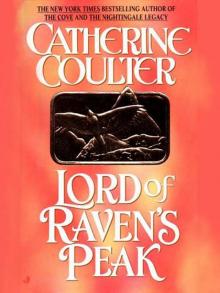 Lord of Raven's Peak
Lord of Raven's Peak The Wyndham Legacy
The Wyndham Legacy The Strange Visitation at Wolffe Hall
The Strange Visitation at Wolffe Hall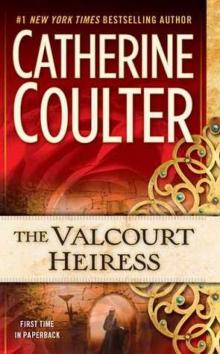 The Valcourt Heiress
The Valcourt Heiress Bombshell
Bombshell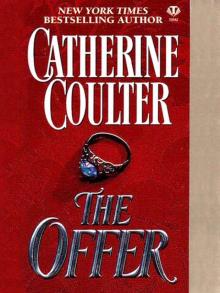 The Offer
The Offer The Edge
The Edge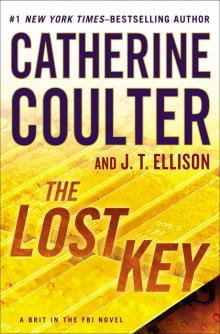 The Lost Key
The Lost Key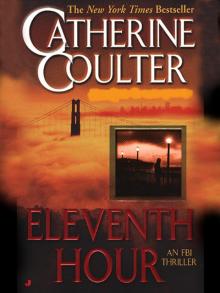 Eleventh Hour
Eleventh Hour Blindside
Blindside Devil's Daughter
Devil's Daughter Devil's Embrace
Devil's Embrace Earth Song
Earth Song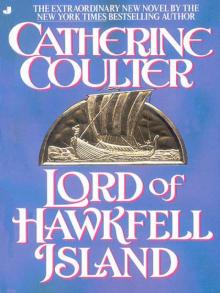 Lord of Hawkfell Island
Lord of Hawkfell Island Calypso Magic
Calypso Magic Lyon's Gate
Lyon's Gate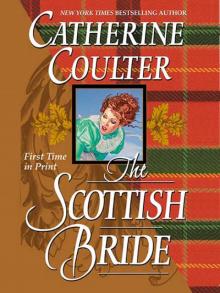 The Scottish Bride
The Scottish Bride Midsummer Magic
Midsummer Magic Split Second
Split Second Enigma
Enigma Blowout
Blowout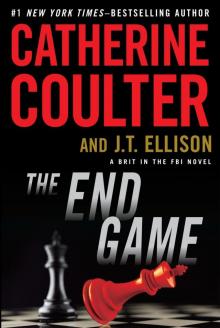 The End Game
The End Game Double Take
Double Take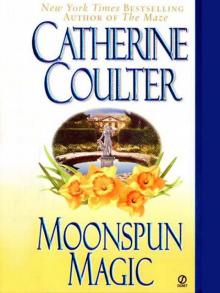 Moonspun Magic
Moonspun Magic The Courtship
The Courtship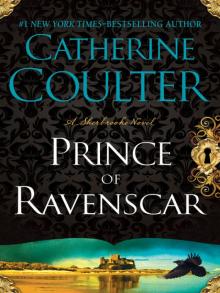 Prince of Ravenscar
Prince of Ravenscar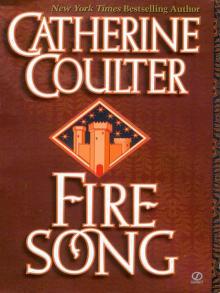 Fire Song
Fire Song Wizard's Daughter
Wizard's Daughter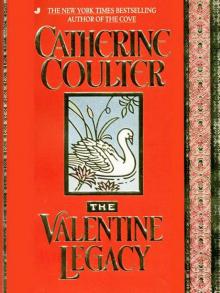 The Valentine Legacy
The Valentine Legacy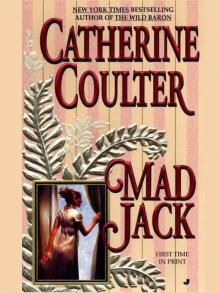 Mad Jack
Mad Jack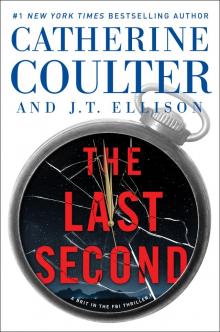 The Last Second
The Last Second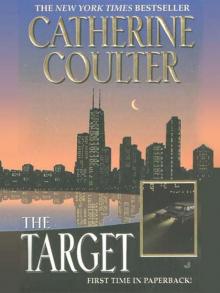 The Target
The Target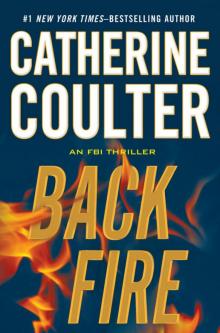 Backfire
Backfire Season of the Sun
Season of the Sun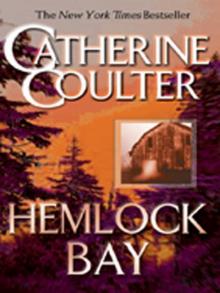 Hemlock Bay
Hemlock Bay Insidious
Insidious Riptide
Riptide The Sixth Day
The Sixth Day Secret Song
Secret Song KnockOut
KnockOut Jade Star
Jade Star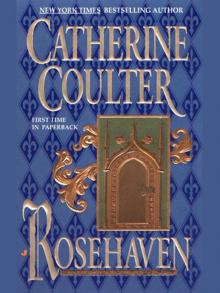 Rosehaven
Rosehaven The Hellion Bride
The Hellion Bride Pendragon
Pendragon Vortex
Vortex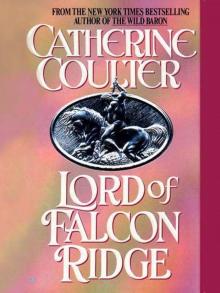 Lord of Falcon Ridge
Lord of Falcon Ridge The Nightingale Legacy
The Nightingale Legacy The Heiress Bride
The Heiress Bride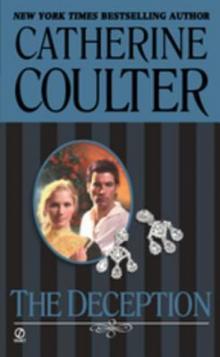 The Deception
The Deception The Maze
The Maze Evening Star
Evening Star Wild Star
Wild Star The Final Cut
The Final Cut Paradox
Paradox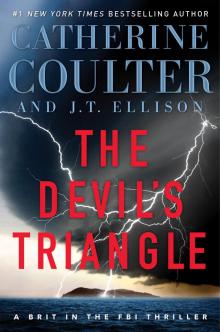 The Devil's Triangle
The Devil's Triangle The Wild Baron
The Wild Baron Point Blank
Point Blank Labyrinth
Labyrinth Lord Deverill's Heir
Lord Deverill's Heir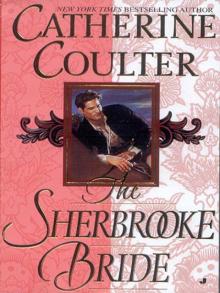 The Sherbrooke Bride
The Sherbrooke Bride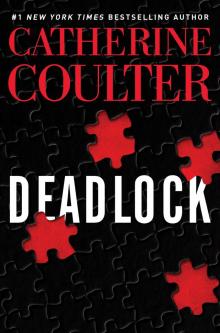 Deadlock
Deadlock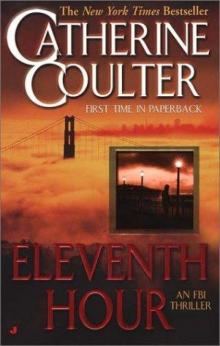 Eleventh Hour f-7
Eleventh Hour f-7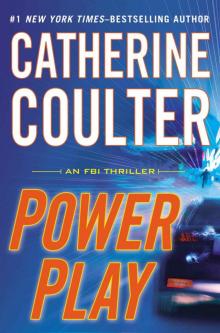 Power Play (An FBI Thriller)
Power Play (An FBI Thriller)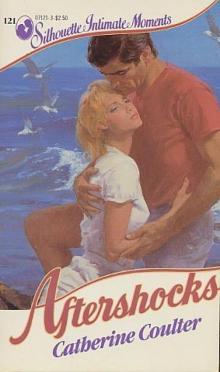 Aftershocks
Aftershocks Sherbrooke Twins tb-8
Sherbrooke Twins tb-8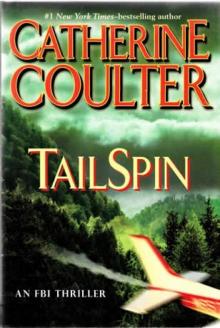 Tail Spin ft-12
Tail Spin ft-12 The FBI Thrillers Collection
The FBI Thrillers Collection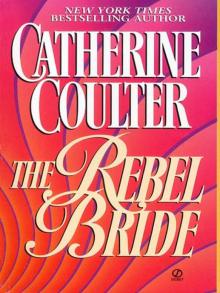 The Rebel Bride
The Rebel Bride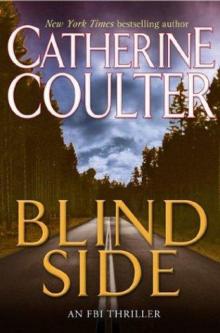 Blindside f-8
Blindside f-8 Lyons Gate tb-9
Lyons Gate tb-9 Wyndham Legacy
Wyndham Legacy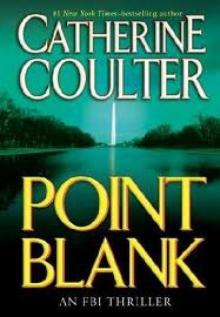 Point Blank f-10
Point Blank f-10 The Prince of Ravenscar
The Prince of Ravenscar Twice Dead
Twice Dead Night Shadow
Night Shadow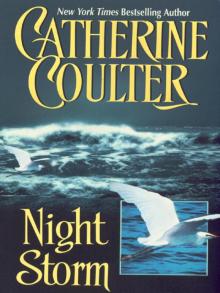 Night Storm
Night Storm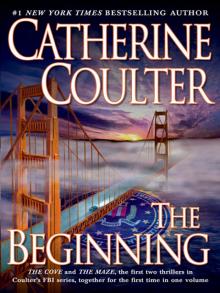 The Beginning
The Beginning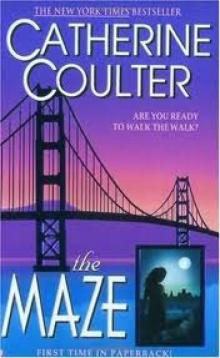 The Maze ft-2
The Maze ft-2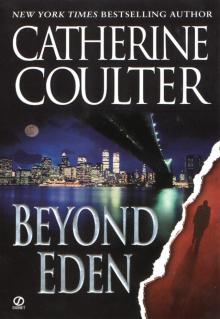 Beyond Eden
Beyond Eden The FBI Thrillers Collection: Vol 11-15
The FBI Thrillers Collection: Vol 11-15 FALSE PRETENSES
FALSE PRETENSES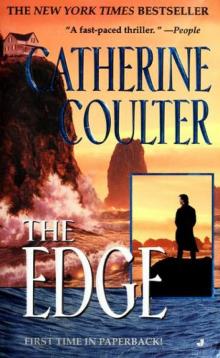 The Edge f-4
The Edge f-4 Bombshell (AN FBI THRILLER)
Bombshell (AN FBI THRILLER) The Ancient Spirits of Sedgwick House (Grayson Sherbrooke's Otherworldly Adventures Book 3)
The Ancient Spirits of Sedgwick House (Grayson Sherbrooke's Otherworldly Adventures Book 3)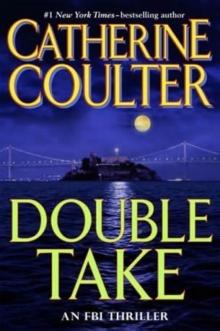 Double Take ft-11
Double Take ft-11 The Heir
The Heir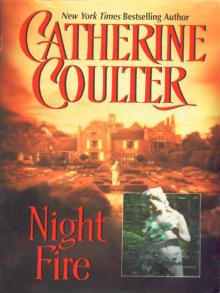 Night Fire
Night Fire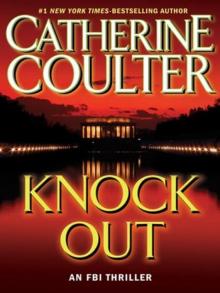 KnockOut ft-13
KnockOut ft-13 Hemlock Bay f-6
Hemlock Bay f-6 The Resident Evil at Blackthorn Manor (Kindle Single) (Grayson Sherbrooke's Otherworldly Adventures Book 2)
The Resident Evil at Blackthorn Manor (Kindle Single) (Grayson Sherbrooke's Otherworldly Adventures Book 2)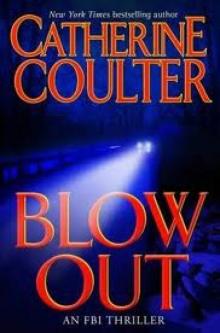 Blowout ft-9
Blowout ft-9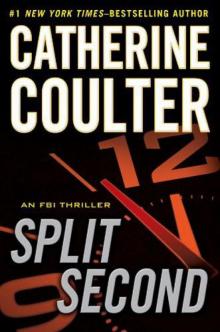 Split Second f-15
Split Second f-15 The Sherbrooke Series Novels 1-5
The Sherbrooke Series Novels 1-5 Impulse
Impulse Paradox (An FBI Thriller Book 22)
Paradox (An FBI Thriller Book 22)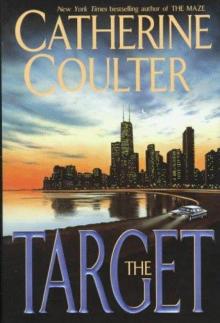 The Target f-3
The Target f-3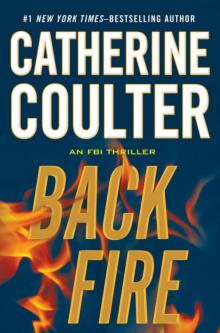 Backfire fst-16
Backfire fst-16 Born To Be Wild
Born To Be Wild Wizards Daughter tb-10
Wizards Daughter tb-10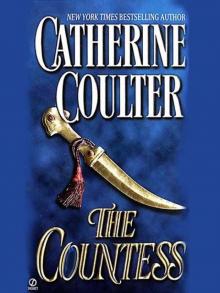 The Countess
The Countess